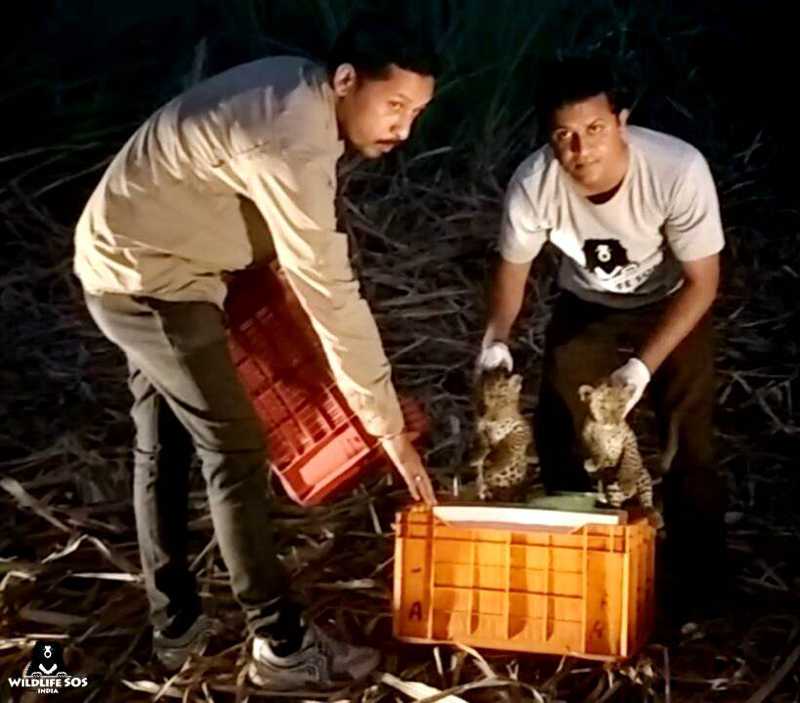Eight Week Old Leopard Cubs Reunited With Mother In Junnar

![]()
EDITED AND HOSTED BY THE GREANVILLE POST
With the onset of harvest season in the state of Maharashtra, it is not uncommon for farmers to be exposed to young leopard cubs taking up shelter in sugarcane fields. In a third incident this month alone, a pair of cubs were discovered by farmers in Ranjani village, located in Junnar district of Maharashtra. The tall sugarcane fields provide a safe cover for leopards to give birth in and to rear their young but this also gives rise to conflict situations when the farmers move into the fields during harvest season.
The Forest Department and the Wildlife SOS team operating out of the Manikdoh Leopard Rescue Center where soon alerted to this incident and both teams immediately made their way to the location. Wildlife SOS veterinarian Dr. Ajay Deshmukh conducted a meticulous examination for ticks and injuries and found the cubs to be healthy and fit for release. They were identified as one male and one female, estimated to be about eight weeks old. Once the team had confirmed the mother’s presence in the vicinity by tracking her pug-marks, they had to act fast to ensure that she found her cubs. The villagers were initially apprehensive and insisted that the cubs be taken away from the area. However, upon realizing that it was in their own best interest as well as that of the cubs, they were more understanding.
Such reunions are of great importance in order to curb conflict situations. If female leopards are unable to locate their cubs, it is natural for them to turn defensive or aggressive and they pose an immediate threat to humans in close proximity. It is also immensely rewarding to know that these cubs will now have a chance at a free life in the wild. In this month alone, our team has carried out three successful leopard reunions.
The scrub forests of Maharashtra are home to a rich population of Indian Leopards (Panthera pardus fusca). However, over the years due to a variety of factors including habitat encroachment and depletion of natural prey base they have been forced to adapt to the changing landscape. The tall sugarcane fields in the region provide a safe cover of these animals, who are struggling to find a foothold in the vanishing forests.
Wildlife SOS works closely with the Forest Dept. to conduct rescue missions and create awareness amongst the local communities to encourage tolerance towards these majestic cats as well as to mitigate conflict.

This work is licensed under a Creative Commons Attribution-NonCommercial 4.0 International License


